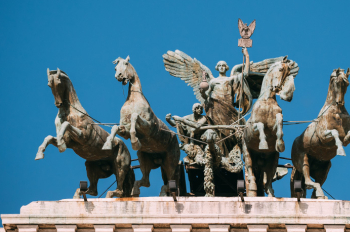
Christian schools plan to seek a Judicial Review over U.K. Government plans to add Value Added Tax (VAT) onto private school fees, which they say risks closing the schools and denying parents the rights to give children an education based on school curriculums prioritizing Christian values and beliefs.
The Christian Legal Centre is supporting Emmanuel School in Derby, the Branch Christian School in Yorkshire, and the King’s School in Hampshire for the legal claim. Several Christian parents and pupils have also been included in the claim, stating the new Labour Government has illegally discriminated against them because of the VAT policy.
A draft bill was announced by the government on July 29, to pass legislation through the Finance Bill for the 2024/2025 Budget, which will amend the VAT Act 1994. Members of House of Commons debated the issue Tuesday, Oct. 8 but the plans are set to go ahead from Jan 1. 2025.
“The proposals are short-sighted and the government does not appear to realise, or care, about the impact they will have on the U.K.’s education system,” said Caroline Santer, Headteacher at The King’s School in Hampshire.
“The VAT increase affects families who are not from affluent backgrounds but want to send their children to a Christian school. Following the draft legislation, a number of families have been forced to take out loans.
“The school will also feel the effect of the VAT increase as we will lose 80 percent relief on business rates. The policy will also have a significant impact on teachers’ wages and on the ability of independent schools to maintain their buildings.”
According to the Christian Legal Centre, the VAT requirement will likely close independent schools because parents would be unable to pay the additional fees. Some pupils with special needs would be unable to finish qualifications and access tertiary education.
About 370,000 pupils attend independent faith schools in England, and most of them are Christian schools, according to the Christian Legal Centre. A letter sent to the government and MPs by the claimants says the VAT introduction breaches protected property rights under Article 1 to the First Protocol to the European Court of Human Rights (ECHR).
Education in the U.K. has never been taxed, according to the claimants, and that makes the government’s decision “unprecedented.” The measure also fails “several key legal requirements,” the claimants say. In their letter, they also refer to an “international consensus”, saying that compulsory school education is not to be taxed.
Furthermore the Christian Legal Centre stated the policy is not based on parents’ ability to pay the additional fees, so it cannot be deemed “proportionate.” No alternative to schools facing closures as a result of the additional VAT rates has been given by the government, the lawyers argue, so the policy is “oppressive.”
“Lawyers state the imposition of VAT on private school fees will prevent parents from being able to educate their children in conformity with their Christian beliefs and fails to afford due respect to parental rights under European law and therefore violates their Convention rights,” stated rights group Christian Concern in a press release.
The VAT extension “disproportionately impacts parents, and in particular Christian parents, who wish their children to be educated in Christian schools which have predominantly Christian teachers and cover all subjects from a Christian worldview perspective.”
The claim says the government is therefore breaching the rights of the families under Article 14 of the European Court of Human Rights: the right to protect from discrimination.
Christian Concern listed several case examples of families who would face difficult choices if the VAT extension is implemented.
A certain family, not wanting to be identified but named in the claim, include a single mother and guardian of two children attending one of the fee-paying Christian schools.
Both youngsters were previously looked-after children, placed with the guardian, a former youth worker and full time carer, for several years. One of the children needed special needs education and the guardian successfully sued a local authority to ensure these needs could be funded.
Because the local authority could not fund the child’s needs at a state school, an independent Christian school was recommended. The child was given a place at the fee-paying school after 18 months of legal wrangling.
The other child suffered anxiety attacks and struggled during the Covid pandemic.
Ben Snowdon, Headteacher at Emmanuel School in Derby, called the consequences of the intended policy “devastating” for independent Christians schools and similar low-cost independent schools. He highlighted particular concerns for parents on low incomes and children with special educational needs.
“Emmanuel is an incredibly diverse community with many of our families making huge financial sacrifices to send their children because of our Christian ethos and because of our reputation within their communities,” said Snowdon.
“A significant proportion of the children in our school are from lower-income families who simply cannot afford additional school fees. These families have chosen low-cost private education at immense personal sacrifice in order to access Christian education which is not available to them in state schools or because their children have SEN [Special Educational Needs].”
Snowdon said the government should bear the whole financial cost of educating these children if they are forced to leave the school or the school itself becomes “financially unviable and fails.”
“As a school we are unable to absorb the costs associated with the imposition of VAT on school fees,” he added. “Our low fees are only possible because of the sacrifices our staff already make by accepting lower salaries than those available to them in the state sector.
“The fees at our school of £4,320 [$5,656 USD] are less than the government contributes per child to local state primary schools. If the government’s proposals are implemented, for Emmanuel and other schools like us, it will result in a net cost to the government as well as removal of diversity and choice in education for lower income families.”





